Related Research Articles
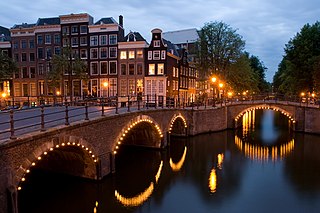
Amsterdam is the capital and most populous city of the Netherlands; with a population of 907,976 within the city proper, 1,558,755 in the urban area and 2,480,394 in the metropolitan area. Found within the Dutch province of North Holland, Amsterdam is colloquially referred to as the "Venice of the North", due to the large number of canals which form a UNESCO World Heritage Site.
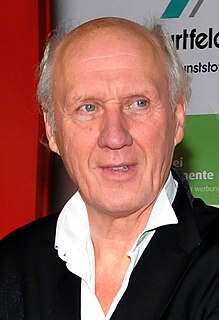
Hermannus Jantinus van Veen is a Dutch stage performer, actor, author, singer-songwriter and musician. He worked with accompanists Laurens van Rooyen and Erik van der Wurff, both were pianist annex composer.

The Dutch underground press was part of the resistance to the German occupation of the Netherlands during World War II, paralleling the emergence of underground media across German-occupied Europe.
Harlekijn is the Dutch record label of Herman van Veen. it was established in 1968.

Hedwig "Hedy" d'Ancona is a retired Dutch politician of the Labour Party (PvdA) and political activist.

FC Blauw-Wit Amsterdam was a Dutch football club from Amsterdam. The name referred to the colours of their uniform, blue and white.
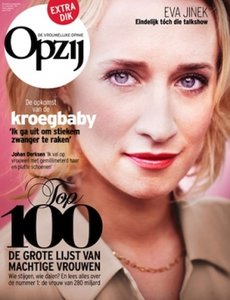
Opzij is a mainstream Dutch feminist monthly magazine. The title means "out of the way!"

Otto van Veen, also known by his Latinized name Otto Venius or Octavius Vaenius, was a painter, draughtsman, and humanist active primarily in Antwerp and Brussels in the late 16th and early 17th centuries. He is known for running a large studio in Antwerp, producing several emblem books, and for being, from 1594 or 1595 until 1598, Peter Paul Rubens' teacher. His role as a classically educated humanist artist, reflected in the Latin name by which he is often known, Octavius Vaenius, was influential on the young Rubens, who would take on that role himself.
Antoni Fredrik "Ton" Hartsuiker was a Dutch classical pianist, best known as a performer of 20th-century classical music, composer, music school administrator, and radio broadcaster.

Gerrit van der Veen was a Dutch sculptor. He was a member of the Dutch underground, which resisted the German occupation of Amsterdam during World War II. The historian Robert-Jan van Pelt wrote:
In 1940, after the German occupation, van der Veen was one of the few who re-fused to sign the so-called “Arierverklaring,” the Declaration of Aryan Ancestry. In the years that followed, he tried to help Jews both in practical and symbolic ways. Together with the musician Jan van Gilse and the artist, art historian, and critic Willem Arondeus, van der Veen established the underground organization De Vrije Kunstenaar. Van der Veen and the other artists published a newsletter calling for resistance against the occupation. When the Germans introduced identity documents (Persoonsbewijzen) that distinguished between Jews and non-Jews, van der Veen, Arondeus and the printer Frans Duwaer produced some 80,000 false identity papers.

Maria Johanna Meijsing was a Dutch novelist. She won the AKO Literatuurprijs in 2000 for her novel De tweede man, and in 2008 the Ferdinand Bordewijk Prijs for her novel Over de liefde. Doeschka Meijsing is the older sister of writer Geerten Meijsing and philosopher Monica Meijsing.
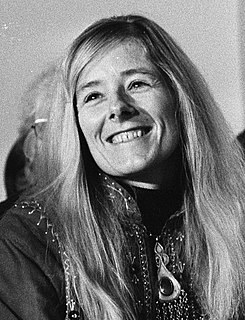
Johanna Elisabeth (Joke) Smit was a well-known Dutch feminist and politician in the 1970s.

Brill Academic Publishers is a Dutch international academic publisher founded in 1683 in Leiden, Netherlands. With offices in Leiden, Boston, Paderborn and Singapore, Brill today publishes 275 journals and around 1200 new books and reference works each year all of which are "subject to external, single or double-blind peer review." In addition, Brill provides of primary source materials online and on microform for researchers in the humanities and social sciences.
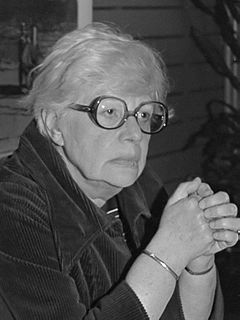
Wim Hora Adema was a Dutch author of children's literature and a feminist, notable for being the co-founder of Opzij, founded in 1972 as a radical feminist monthly magazine. She was one of the best-known women of the Dutch second wave of feminism.
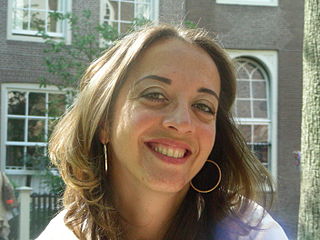
Ebru Umar is a Dutch columnist of Turkish descent. Under the influence of Theo van Gogh, she gave up a career in management and became a columnist, first for van Gogh's website and, after he was assassinated, as his successor as a regular columnist of Metro. She writes for a number of Dutch magazines and has published four books, often on the topics of feminism and criticism of Islam.

Williswinde is a collection of verses written by Dutch writer Louis Couperus. The first edition was published by L.J. Veen in 1895. In 1904 Veen acquired full rights of Williswinde and 16 other works that were written by Couperus. For the first edition in 1894 Couperus received 200 guilders and the poems by that time had already been published in a number of Dutch newspapers and magazines. However Couperus had some difficulty to get the poem Williswinde published, as he wrote in a letter to a colleague, Smit Kleine. The book cover was designed by painter Ludwig Willem Reymert Wenckebach.

Agnes Jongerius is a Dutch trade unionist and politician who has been a Member of the European Parliament (MEP) for the Netherlands since July 2014. She is a member of the Labour Party, part of the Progressive Alliance of Socialists and Democrats. Between 1987 and 2012 she worked for the Federatie Nederlandse Vakbeweging, a trade union federation. She was chair of the federation between 2005 and 2012.

Sylvia Weve is a Dutch illustrator.

The Raamgracht is a canal in central Amsterdam that runs from the Kloveniersburgwal to the Zwanenburgwal. The Groenburgwal, Verversstraat and Zanddwarsstraat lead to the Raamgracht. Bridge 225 over the canal is beside the Kloveniersburgwal, and Theo Boschbrug over the canal is beside the Zwanenburgwal.

Maaike Meijer is a Dutch literary scholar. She is a Professor emeritus of Maastricht University.
References
- ↑ "Opzij definitief naar Veen Media". de Volkskrant (in Dutch). 9 January 2014. Retrieved 20 May 2014.
- ↑ "Irene de Bel wordt de nieuwe hoofdredacteur van Opzij". NRC Handelsblad (in Dutch). 20 May 2014. Retrieved 20 May 2014.
- ↑ "Kantoorgebouw Veen Media in Amsterdam" (in Dutch). de Architect. 7 January 2013. Retrieved 20 May 2014.